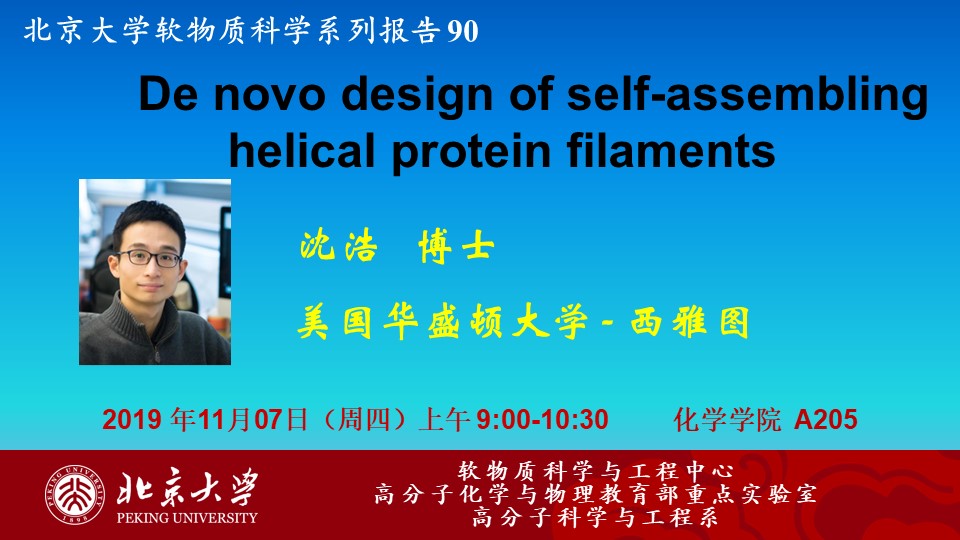
Abstract:
There has been some success in designing stable peptide filaments; however, mimicking the controllable and reversible assembly of many natural protein filaments is challenging. We devised a general computational approach to designing self-assembling helical filaments from monomeric proteins and use this approach to design proteins that assemble into micrometer-scale filaments with a wide range of geometries in vivo and in vitro. Cryo-electron microscopy structures of six designs are close to the computational design models. The filament diameter can be tuned by varying the number of repeats in the monomer. Anchor and capping units, built from monomers that lack an interaction interface, can be used to control assembly and disassembly. The filaments provide new phenomena through interactions with cells. I extended the building blocks to design multi-component and pH-responsive filaments with more control. We're also designing protein nanowire incorporating closely packed hemes for nanoelectronic applications. The ability to generate dynamic, highly ordered structures that span micrometers from protein monomers opens up possibilities for the fabrication of new multiscale metamaterials.